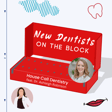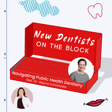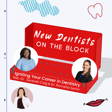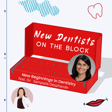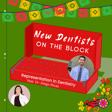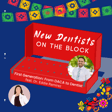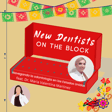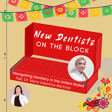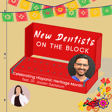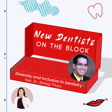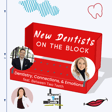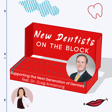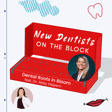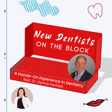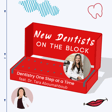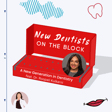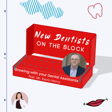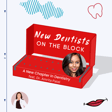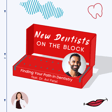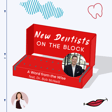
Impressing the Perfect Smile W/ Dr. Rupert Monkhouse
In this episode, Tanya Sue interviews Rupert Monkhouse, a general dentist with a passion for removable prosthodontics. Rupert shares his journey in dentistry, from his education in London to his current practice in Reading. He discusses the unique aspects of dental education in the UK, including the mandatory foundation year in the National Health Service (NHS). Rupert also highlights the importance of mentorship and continuous learning in his field. He explains how he has honed his skills in removable prosthodontics through social media, online resources, and collaborations with other dental professionals. The conversation delves into the intricacies of denture impressions and the key factors that contribute to successful denture retention. Rupert also provides insights into his upcoming plans to specialize in prosthodontics and expand his expertise in implant dentistry.
About the Guest:
Rupert is a general dentist based in London, UK. He has a particular interest in removable prosthodontics and shares his cases on Instagram @dentistRupert on this platform he also hosts the ImpressionClub Live podcast and edits a monthly newsletter available through his website. Rupert has a passion for education and runs a primary impression course in the UK with more launching soon. He also sits on committees for both the International Team for Implantology and The British Academy of Cosmetic Dentistry
Key Takeaways:
- Dental education in the UK allows students to enter dental school straight from high school, with a five-year undergraduate program.
- The foundation year in the NHS provides structured training and mentorship for new dentists, allowing them to gain experience in different areas of dentistry.
- Rupert emphasizes the importance of mentorship and continuous learning in dentistry, particularly in niche areas like removable prosthodontics.
- Social media platforms, such as Instagram, have played a significant role in Rupert's professional development, allowing him to connect with other dental professionals and learn from their experiences.
- Successful denture retention relies on capturing accurate impressions, understanding the functional prosthetic envelope, and considering the muscle action on the flanges.
Connect with Rupert Monkhouse on IG: @dentistrupert
Check out his website: ImpressionClub
Connect with New Dentists on the Block: @newdentistsontheblock
Connect with Tanya Sue Maestas: @tsmaestas.dds
Full video on Youtube
Swing by Peyruis | https://soundcloud.com/peyruis Music promoted by https://www.free-stock-music.com Creative Commons / Attribution 3.0 Unported License (CC BY 3.0) https://creativecommons.org/licenses/by/3.0/deed.en_US
